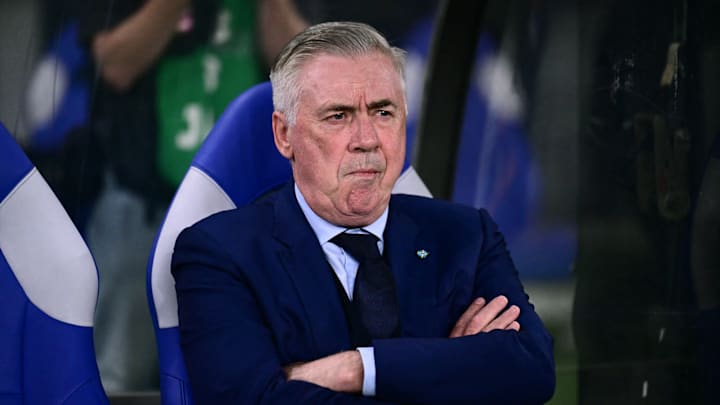Carlo Ancelotti, now coaching Brazil, was refreshingly straightforward in a recent interview about the current Champions League format.
From the 2024–25 season, the group stage has been replaced with a Swiss-style league phase. 36 teams will play in a single table, each playing eight matches against different opponents, instead of the traditional round-robin groups. The top eight go straight to the Round of 16, the next 16 go into a playoff for the remaining spots.
The aim was supposedly to have more variety, more big matches and more excitement early on, but the early results this season are not living up to those expectations.
“The Champions League has the usual favorites: Real Madrid, PSG, Manchester City, and Bayern Munich. We’ve seen matches with high goal [margins] and such results make us lose interest. This first phase has been expanded to make it more interesting yet it’s not turning out that way.” he told Tuttosport.
Ancelotti’s blunt assessment sums up the wider conversation about the changes to the Champions League.
Why the new format is not as satisfying as we hoped it would be
The first matchdays have seen several one-sided scorelines, with the big clubs still dominating. Real Madrid beat Kairat 5–0, Atlético Madrid defeated Eintracht Frankfurt 5–1, Marseille thrashed Ajax 4–0.
While these games were fun for the winning team’s fans, they just shpw exactly what Ancelotti was saying: when the scorelines are so one-sided the matches themselves can be predictable and the competition less interesting for neutral fans.
And then there’s the issue of player workload. With more matches and tighter schedules managers have to rotate their squads heavily which can lead to uneven performances. Smaller clubs struggle to compete with the big clubs who have deeper squads.
Even though the format was designed to make the Champions League more inclusive and exciting, it has arguably highlighted the gap between the big clubs and the rest. The deeper the squad, the bigger the advantage. More fixtures, more games, more rotation play into the hands of clubs with resources to absorb it.
Beyond the matches themselves, the commercial side of this new Champions League format is impossible to ignore — and money has won over football. The number of matches went from 125 to 189, which is great for broadcasters and advertisers and fills more stadiums, but at a cost: some of these games are just… boring.
And in the end, top clubs will benefit more than anyone. They get at least four home games in the group stage, guaranteed ticket sales and extra exposure, while according to UCFB, UEFA is expecting revenue to top €4.5 billion (it was 3.5 with the previous format). From a business perspective you can’t argue with that. But from a footballing perspective? It’s a different story.
Ancelotti’s point is spot on. Coming from a national-team-coach perspective, now he can call it as he sees it without the usual club politics getting in the way.
